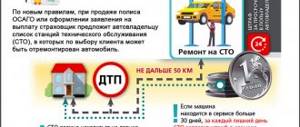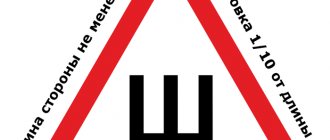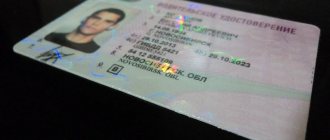Publication date: 03/04/2019 Number of views: 5705
Author: Ermakov Andrey Valerievich Lawyer, partner of the Legal Agency of St. Petersburg Articles written: 20
The situation when an insurance company files a lawsuit against the culprit of an accident in order to recover material damage based on the compensation paid to the injured party is becoming more and more common every year. If previously relatively little-known organizations that had close ties with collection agencies committed similar sins, today you can get a claim for subrogation or recourse from almost any insurance company. Recently, there has been increased activity on the part of the insurance company, which is trying to compensate for its losses under CASCO or OSAGO contracts by filing lawsuits against those responsible for the accident. There is a trend: if the accident occurred in 2015 or 2021 (the statute of limitations is about to expire), and the amount of paid material damage exceeds 100-120 thousand rubles, you can expect a quick summons from the court. There are many explanations for this: the unstable economic situation in the country, a sharply increased number of vehicles, competition in the market, tightening legislation in the field of insurance companies. In order to somehow preserve their assets and not become bankrupt, they are forced to resort to subrogation and recourse claims. What to do if the insurance company sues the person responsible for the accident, what is the difference between recourse and subrogation, is it possible to reduce the amount of payments for a lawsuit and how to protect your property rights? Answers to these and related questions are provided by professional lawyers in the field of insurance law and civil law.
Concept of losses
The official definition of the concept of “losses” is contained in the fifteenth article of the Civil Code.
The law includes the following categories of losses (in terms of compensation for losses in case of an accident):
- real damage - actual expenses that the victim will incur in the future or has already incurred to repair his car, and in the event of complete destruction of the iron friend - its cost;
- lost profits – income that the victim “lost” due to damage to his property.
In case of damage to health, the amounts spent on treatment and restoration are considered actual damage, and the decrease or loss of earnings is considered lost profit.
There must be a direct connection between the accident and the expenses incurred by the victim (cause - effect), and the amount of expenses must be documented.
Arbitrage practice
During the consideration of disputes regarding compensation for damage after an accident, a certain judicial practice has emerged in recognizing the disputed expenses of the injured party as losses. The courts recognized the right of the victim to compensation for the following expenses:
- from the causer of harm in a road traffic accident it is possible to recover losses exceeding the amount of insurance compensation under compulsory motor liability insurance;
- to pay for calling insurance commissioners, expenses for pre-trial research of the market value of the car;
- loss of marketable value of the vehicle;
- expenses for the services of a representative in court.
The right to compensation for damages remains in case of sale of the car.
I am the culprit of the accident, they filed a lawsuit against me. What should I refer to in order not to pay the victim?
Hello. I am the culprit of the accident, they filed a lawsuit against me. What should I refer to in order not to pay the victim?
Lawyer Antonov A.P.
Good afternoon
According to Articles 1064, 1072, 1079 of the Civil Code, harm caused to the person or property of a citizen, as well as harm caused to the property of a legal entity, is subject to compensation in full by the person who caused the harm. The law or contract may establish the obligation of the harm-doer to pay compensation to the victims in excess of compensation for harm. The law may establish the obligation of a person who is not the causer of harm to pay compensation to victims in excess of compensation for harm. The person who caused the harm is released from compensation for harm if he proves that the harm was not caused through his fault. The law may provide for compensation for harm even in the absence of the fault of the harm-doer. Damage caused by lawful actions is subject to compensation in cases provided for by law. Compensation for harm may be refused if the harm was caused at the request or with the consent of the victim, and the actions of the harm-doer do not violate the moral principles of society. A legal entity or citizen who has insured its liability through voluntary or compulsory insurance in favor of the victim (Article 931, paragraph 1 of Article 935), in the event that the insurance compensation is not enough to fully compensate for the damage caused, compensates the difference between the insurance compensation and the actual the amount of damage. Legal entities and citizens whose activities are associated with increased danger to others (use of vehicles, mechanisms, high-voltage electrical energy, nuclear energy, explosives, potent poisons, etc.; carrying out construction and other related activities, etc. .), are obliged to compensate for damage caused by a source of increased danger, unless they prove that the damage arose as a result of force majeure or the intent of the victim. The owner of a source of increased danger may be released by the court from liability in whole or in part also on the grounds provided for in paragraphs 2 and 3 of Article 1083 of this Code. The obligation to compensate for damage is assigned to a legal entity or citizen who owns a source of increased danger on the right of ownership, the right of economic management or the right of operational management or on another legal basis (by lease, by power of attorney for the right to drive a vehicle, by virtue of an order of the relevant body on transferring to him a source of increased danger, etc.). The owner of a source of increased danger is not liable for damage caused by this source if he proves that the source was removed from his possession as a result of the illegal actions of other persons. Responsibility for damage caused by a source of increased danger in such cases lies with the persons who unlawfully took possession of the source. If the owner of a source of increased danger is guilty of illegally removing this source from his possession, liability can be imposed on both the owner and the person who unlawfully took possession of the source of increased danger. Owners of sources of increased danger are jointly and severally liable for damage caused as a result of the interaction of these sources (vehicle collisions, etc.) to third parties on the grounds provided for in paragraph 1 of this article. According to Articles 10 and 15 of the Civil Code, the exercise of civil rights solely with the intention of causing harm to another person, actions in circumvention of the law for an unlawful purpose, as well as other deliberately dishonest exercise of civil rights (abuse of law) are not allowed. The use of civil rights to restrict competition, as well as the abuse of a dominant position in the market, is not allowed. In case of non-compliance with the requirements provided for in paragraph 1 of this article, the court, arbitration court or arbitration tribunal, taking into account the nature and consequences of the abuse committed, denies the person the protection of his rights in whole or in part, and also applies other measures provided for by law. If the abuse of right is expressed in the commission of actions in circumvention of the law for an unlawful purpose, the consequences provided for in paragraph 2 of this article shall apply, since other consequences of such actions are not established by this Code. If the abuse of right has resulted in a violation of the right of another person, such person has the right to demand compensation for losses caused by this. The integrity of participants in civil legal relations and the reasonableness of their actions are assumed. A person whose right has been violated may demand full compensation for the losses caused to him, unless the law or contract provides for compensation for losses in a smaller amount. Losses are understood as expenses that a person whose right has been violated has made or will have to make to restore the violated right, loss or damage to his property (real damage), as well as lost income that this person would have received under normal conditions of civil circulation if his right was not violated (lost profits). If the person who violated the right received income as a result, the person whose right was violated has the right to demand compensation, along with other damages, for lost profits in an amount not less than such income. Damage caused as a result of the interaction of sources of increased danger to their owners is compensated on a general basis (Article 1064). According to clause 4.2 of the Resolution of the Constitutional Court of the Russian Federation of March 10, 2021 No. 6-P “In the case of verifying the constitutionality of Article 15, paragraph 1 of Article 1064, Article 1072 and paragraph 1 of Article 1079 of the Civil Code of the Russian Federation in connection with complaints from citizens A. WITH. Arinushenko, G.S. Beresneva and others,” giving in Resolution No. 6-P of May 31, 2005 an assessment of the Federal Law “On Compulsory Insurance of Civil Liability of Vehicle Owners” as a whole based on its relationship with the provisions of Chapter 59 of the Civil Code of the Russian Federation, the Constitutional Court of the Russian Federation came to the following conclusions: the claim of the victim (beneficiary) to the insurer for payment of insurance compensation (for insurance payment) under the compulsory insurance contract is independent and differs from the claims arising from obligations due to damage; the insurance compensation must be paid directly by the insurer, and the occurrence of an insured event entailing such an obligation does not in itself relieve the insured from civil liability to the victim for causing harm to him; differences in the legal nature and purpose of the insurer’s obligation to pay insurance compensation arising from a compulsory insurance contract and a tort liability also determine differences in the mechanisms for compensation for harm within the framework of the relevant legal relations; the confusion of various obligations and their elements, one of which is the procedure for the victim to exercise his right, leads to the replacement of one civil law institution with another and may lead to adverse consequences for the party in whose interests it was established, in this case, the victim (beneficiary), and thereby violating his constitutional rights and freedoms. The given legal positions, from which it follows that the institution of compulsory insurance of civil liability of vehicle owners, introduced into the current legislation in order to increase the level of protection of the rights of victims when they are harmed when using vehicles by other persons, cannot replace the institution of tortious obligations, regulated by Chapter 59 of the Civil Code of the Russian Federation, and cannot lead to a reduction in the amount of compensation for harm that the victim has the right to count on on the basis of the general provisions of civil legislation, were developed in subsequent decisions of the Constitutional Court of the Russian Federation. In particular, as follows from the rulings of the Constitutional Court of the Russian Federation dated June 21, 2011 No. 855-O-O, dated December 22, 2015 No. 2977-O, No. 2978-O and No. 2979-O, the provisions of the Federal Law “On Compulsory Insurance civil liability of vehicle owners", determining the amount of costs for spare parts taking into account the wear and tear of components (parts, assemblies and assemblies) to be replaced during restoration repairs, as well as prescribing the implementation of an independent technical examination and forensic examination of the vehicle using a unified methodology for determining the size expenses for restoration repairs in relation to a damaged vehicle do not prevent compensation for damage by the direct causer in accordance with the legislation of the Russian Federation, if the amount of actual damage suffered by the victim exceeds the amount of insurance compensation paid to him by the insurer. This conclusion is consistent with the provision of paragraph 23 of Article 12 of the Federal Law “On compulsory insurance of civil liability of vehicle owners”, according to which an amount in the amount of the part of the claim that remains unsatisfied in accordance with this Federal Law can be recovered from the person who caused the harm. Thus, the victim’s demand itself is legal; you can only challenge its size.
Sincerely, lawyer Anatoly Antonov, managing partner of the law firm Antonov and Partners.
Still have questions for your lawyer? Ask them right now here, or call us by phone in Moscow +7 (499) 288-34-32 or in Samara +7 (846) 212-99-71 (24 hours a day), or come to our office for a consultation (by pre-registration)!
Refund procedure
Damage caused to the health, life or property of the victim must be compensated in full.
Depending on whether the liability of the person responsible for the accident was insured, damage caused to the victim or his property is compensated by the driver found guilty of the accident or by the insurance company with which the insurance was taken out.
If the funds paid under the insurance policy are not enough to cover all losses, the person at fault for the accident may be required to pay more than the amount of insurance coverage.
This rule applies regardless of whether compensation for losses is made under a compulsory motor liability insurance agreement or the liability was insured under a CASCO agreement.
Having insurance does not relieve the harm-doer from liability for his actions.
How can you get money from the culprit of an accident?
The insurance company that insured the civil liability of road users in accordance with the MTPL agreement must be responsible for compensation for damage after an accident. At the same time, it is worth noting that there are limits on the amount of payments that can be received from the insurance company. If only property was damaged as a result of the accident, then you can count on compensation from the insurer in the amount of up to 400 thousand rubles. When the victims suffered physical harm, this amount will not exceed 500 thousand rubles. It doesn’t matter how many victims there were in a traffic accident. Everyone has the right to compensation for damages. True, sometimes there is a need to recover an amount from the culprit of an accident when the established limit is not enough to cover expenses.
There are cases in practice when the insurer does not want to compensate for damage to the policyholder. The reasons for this can be very diverse:
- the driver was driving while intoxicated at the time of the accident;
- the person responsible for the incident does not have a license to drive the vehicle;
- at the time of the accident, the culprit of the tragedy did not have a compulsory motor liability insurance policy;
- a traffic accident during a period not covered by the MTPL policy;
- revocation of the insurer's license.
In none of the listed cases does the Investigative Committee have the right to deprive the victim of compensation payment. The insurer is obliged to bear responsibility for its clients, and in the future can simply demand the amount spent from the culprit of the accident by way of recourse.
To recover money from the culprit of an accident if he does not have insurance, you should contact the Russian Union of Auto Insurers and seek legal advice.
The person responsible for the accident is obliged to compensate for damage if:
- the amount of damage to the injured party turned out to be higher than the maximum insurance limits;
- the damage was caused to the injured party not while the vehicle was moving, but, for example, in a parking lot;
- victims need compensation for moral damage when they received bodily injuries as a result of an accident;
- The person at fault for the road accident does not have a concluded MTPL insurance contract, according to which the insurer bears civil liability for the misconduct of its client.
Important! If at the time of the accident the car was not driven by its owner, then liability for damages will still be assigned to the owner of the movable property.
Who to contact
Having settled the primary formalities at the scene of the accident, you should take care of ensuring your interests and inquire with which insurance company the policy of the second party to the accident was issued.
As a general rule, compensation for damage in an accident under compulsory motor liability insurance is provided by your insurance company if two conditions are met:
- no people were injured in the accident;
- the owners of the vehicles involved in the accident took out MTPL policies.
In this case, the injured party sends an application for direct compensation to its insurance company.
You must apply for compensation for damages under compulsory motor liability insurance to your counterparty’s insurer in all other cases.
To apply for CASCO compensation, contact your insurer. In this case, after payment to the policyholder, the company independently recovers funds from the culprit of the accident in its favor.
In cases where it is impossible to compensate for losses under compulsory motor liability insurance (there is no insurance, the collision is not recognized as an insured event, etc.), you did not purchase a CASCO policy, and also in the event of insufficient insurance, you should contact the person responsible for the collision directly.
How to force the culprit of an accident to compensate for damages
Conflicts related to road accidents are always quite controversial, since the Russian legislative framework does not provide for the consideration of all cases without exception. The law speaks more broadly about various cases. For this reason, some situations are twofold, because they can bring both benefit and harm to the car owner. The main thing in this case is to use legal knowledge correctly.
First of all, it is not necessary to claim compensation for the damage caused from the culprit of the accident. For this purpose, our country has introduced compulsory motor third-party liability insurance. So, first of all, the insurance company should compensate for the damage. True, not all companies treat their responsibilities conscientiously and as a result, the person is left without payments at all.
You can demand money for car repairs and other expenses from the person responsible for the accident under the following conditions:
- if the insurance company refused to pay (a non-insured event occurred, the contract was invalid, etc.);
- when the policy's payment limit is not enough to cover all expenses;
- the victim wishes to recover moral damages;
- when the participants in the accident do not have compulsory motor liability insurance;
- Insurance payments are not enough to cover all the damage.
In any case, the victim will have to deal with the culprit of the accident. If you want to keep such communication to a minimum, then a lawyer will come in handy.
Important! If, according to the examination, insurance and calculation of the cost of restoration work, one amount was calculated and another was paid, then the wear and tear of the car parts was deducted. It is pointless to argue on this issue, because according to the law, the insurance company or the culprit should not improve the value of the car at their own expense. Therefore, when calculating compensation, wear and tear of the units is also taken into account.
So, how to force the culprit of an accident to compensate for damages? There is no need to get confused during the accident itself, you can even be too persistent, in this case the culprit will understand who he is dealing with. You need to familiarize yourself with all the documents compiled by the traffic police officer; you can also reflect your point of view regarding the incident in the protocol.
Most likely, you will have to do an independent examination of the damaged car. This service is carried out at your own expense, and the person responsible for the accident must be invited to it (he may not show up, but that doesn’t matter). The cost of an expert’s services can be included in the list of expenses associated with an accident and presented to the culprit.
According to the law “On Compulsory Motor Liability Insurance”, it is now mandatory to file a claim before the trial, but this only applies to insurance companies. You can also send a claim to the culprit, but this is not necessary. Filing a claim increases the chances of winning in court, since it is regarded as an attempt to voluntarily resolve the problem.
Complaints are most often ignored, but it is still advisable to send them. By submitting a claim, you can notify the culprit that if he goes to court, he will incur significantly higher costs.
Compensation for damage in case of an accident under compulsory motor liability insurance
Your actions after the accident are described in detail in the memo issued by the insurance company. It specifically states which telephone numbers can be used to call the emergency commissioner, what documents to fill out, where and within what time to contact.
Carefully read the insurance company's memo. This will allow you not to get confused in a stressful situation and fill out the documents correctly.
The general procedure for actions in the event of an insured event is described in the eleventh article of the motor vehicle law.
He instructs:
- inform other participants in the incident information about your insurance company;
- obtain information about insurance companies from other drivers;
- report the accident to your insurer;
- until your property claims are satisfied, act in accordance with the recommendations of the insurance company.
List of documents
To receive insurance compensation under compulsory motor liability insurance, the insurance company provides:
- documents about road accidents issued by the police (with the exception of registration according to the European protocol);
- notification of an accident;
- statement.
You can record the occurrence of an insured event in order to receive compensation under compulsory motor liability insurance without calling the police if:
- the collision occurred between two cars (no more);
- no people were injured;
- the drivers do not dispute the circumstances of the accident and reflected this in the protocol.









